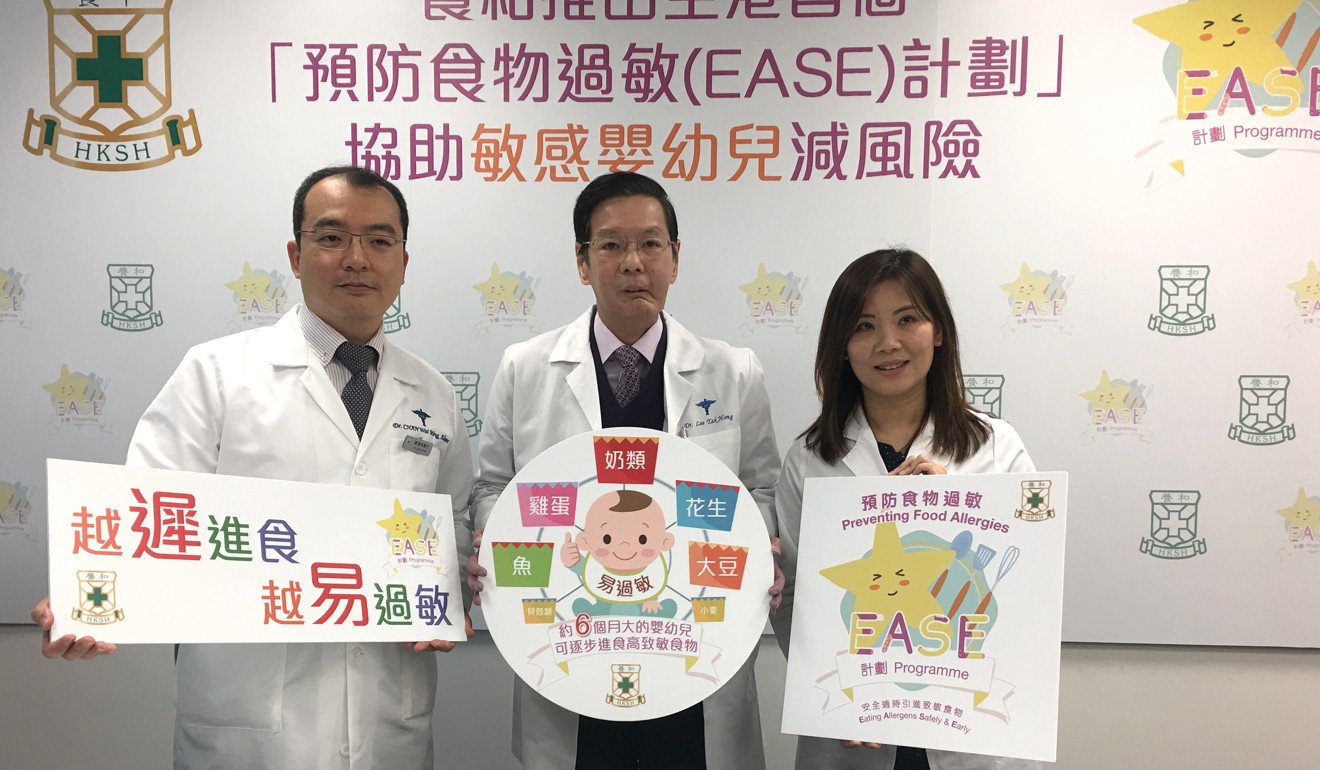
Most Hong Kong parents delay exposing children to allergenic foods – which may be a wrong strategy, study finds
Experts say infants can build up their immunity if they are introduced earlier to such foods, rather than later or never at all

Most Hong Kong parents have misconceptions about food allergies with more than 90 per cent of them preferring to delay exposing their children to allergenic foods such as peanuts and seafood, according to a latest study.
Announcing their findings last week, experts from the Hong Kong Sanatorium and Hospital said infants should be fed as many different types of food as possible from six months of age to build up their immune systems. But they advised parents to first consult a doctor or dietitian, and to be aware of their own family history of allergies.
The study found that half of newborn babies in the city are at risk of suffering from an allergy caused by a hypersensitive immune system, a trend that is becoming increasingly widespread worldwide. In most cases, at least one parent also has the condition.

According to another report in 2012, about 5 per cent of Hong Kong children suffer from one or more types of food allergy. The most common foods triggering reactions were found to be shellfish, eggs, cow’s milk and peanuts.
The World Health Organisation said allergies affect one in three children under 18 years of age worldwide. Symptoms include runny nose, watery eyes, rashes, and nausea.
“The cases of allergy did not drop under the false concept that parents should delay giving their children allergenic food,” said Dr Alson Chan Wai-ming, the hospital’s specialist in paediatric immunology and infectious disease.
“In fact, in the past 20 years, the number of cases we saw increased by two and even threefold.”
Since 2013, global guidelines, including that of the American Academy of Pediatrics, have adopted the new strategy of early introduction of allergenic foods to infants.
International experts suggested the best time to begin introducing solid food to infants, including allergenic food types, is from six months to one year of age.
Chan said breastfeeding and early introduction to allergenic food would help babies develop a tolerance and reduce future cases of allergy.
But out of 430 local parents and would-be parents polled in the study, more than 90 per cent said they preferred to delay the introduction of allergenic foods to their children, even if the infants did not have any known allergies.
Respondents cited concerns over adapting to solid food and the fear of their babies developing a food allergy.
About 30 per cent said they would only include egg white, soy, wheat and fish in their children’s diets when they were one year old, while 70 per cent said they would only let their children consume nuts and shellfish after that age.
“It is very common for Hong Kong parents to avoid such foods as they have this traditional belief passed down to them from their elders,” June Chan, the hospital’s senior dietitian, said.
Dr Tak Lee, director of Hong Kong Sanatorium and Hospital’s allergy centre, said a newborn had a 50 per cent risk of developing an allergy if one of the parents had one. The risk rose to 75 per cent if both parents did.
He advised parents to consult their doctors and dietitians when giving highly allergenic food to babies possessing a high allergy risk based on family history.